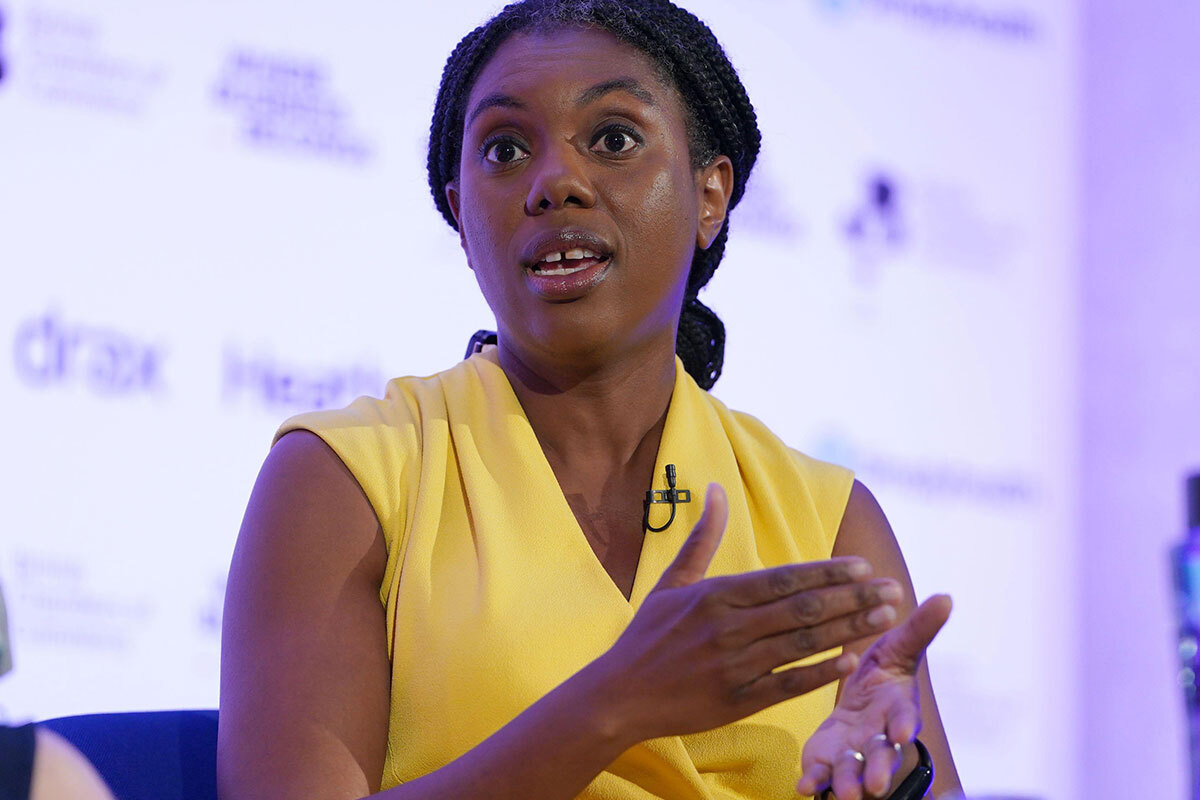others
‘UK my true home’- Kemi Badenoch says she no longer identifies as Nigerian

United Kingdom Conservative leader, Kemi Badenoch, says she no longer identifies as Nigerian and does not hold a passport for the country.
Badenoch, who spent much of her childhood in Lagos and is of Yoruba heritage, explained her stance during an appearance on the Rosebud podcast, noting that her sense of belonging now rests firmly in Britain.
“I have not renewed my Nigerian passport, I think, not since the early 2000s. I don’t identify with it any more, most of my life has been in the UK and I’ve just never felt the need to,” she said.
While stressing she remains connected to her roots, she said her home is defined by where her family is today. “I’m Nigerian through ancestry, by birth despite not being born there because of my parents, but by identity I’m not really. I know the country very well, I have a lot of family there, and I’m very interested in what happens there.
“But home is where my now family is, and my now family is my children, it’s my husband and my brother and his children, in-laws. The Conservative Party is very much part of my family, my extended family, I call it.”
Badenoch was born in Wimbledon, South West London, in 1980, just before her parents returned with her to Nigeria. She was among the final group of children to automatically receive British citizenship before Margaret Thatcher’s government changed the law the following year.
Growing up in Lagos, she often felt caught between two worlds. “Finding out that I did have that British citizenship was a marvel to so many of my contemporaries, so many of my peers,” she said.
Her parents eventually encouraged her to move to the UK at 16, believing opportunities were limited in Nigeria. “I think the reason that I came back here was actually a very sad one, and it was that my parents thought, ‘there is no future for you in this country’.”
Badenoch recalled never feeling entirely at home in Nigeria. “I remember never quite feeling that I belonged there,” she said.
She has faced criticism in Nigeria for her frank comments about corruption and military rule during her youth, with Lagos politicians accusing her of tarnishing the country’s image. Last year, Nigeria’s vice-president remarked that she was free to “remove the Kemi from her name” if she felt no pride in her Nigerian heritage. Her office responded that she “stands by what she says” and is “not the PR for Nigeria.”
Reflecting on her arrival in Britain, Badenoch said she did not encounter significant racial prejudice. “I knew I was going to a place where I would look different to everybody, and I didn’t think that that was odd.
“What I found actually quite interesting was that people didn’t treat me differently, and it’s why I’m so quick to defend the UK whenever there are accusations of racism. I did not experience prejudice in any meaningful form. That doesn’t mean prejudice doesn’t exist, that it doesn’t happen, many people do. But I didn’t, not seriously.”
In describing her political life, Badenoch likened the Conservative Party to an “extended family with lots of drama.”
“I do see the Conservative Party as family, so much of what we do goes beyond party policy,” she said. “It’s instinct, we recognise each other, we have the same sort of squabbles and it’s why when people ask me about plots I just think, ‘eh this is extended family stuff’. Anybody who’s got an extended family with lots of drama will recognise that.”






















